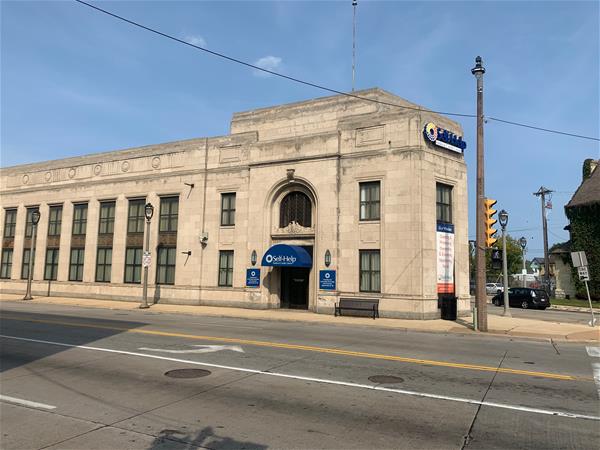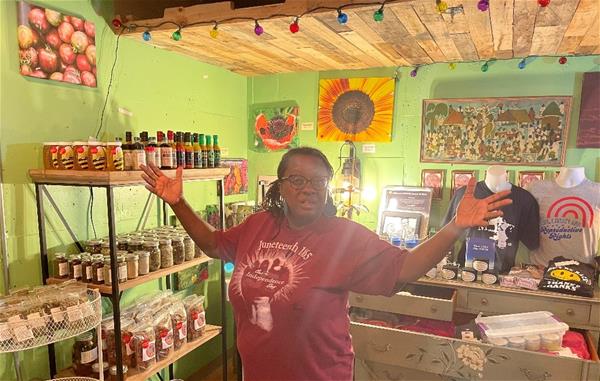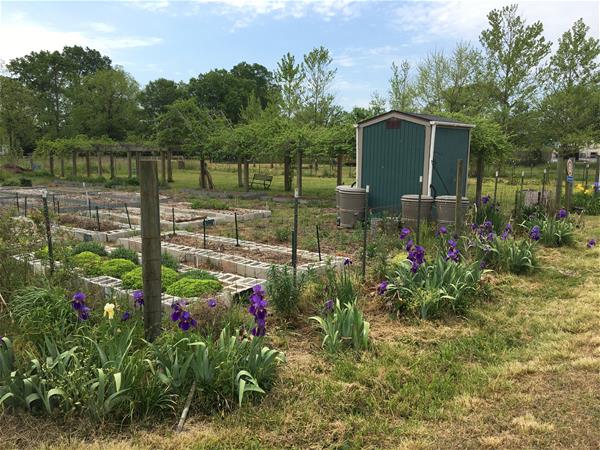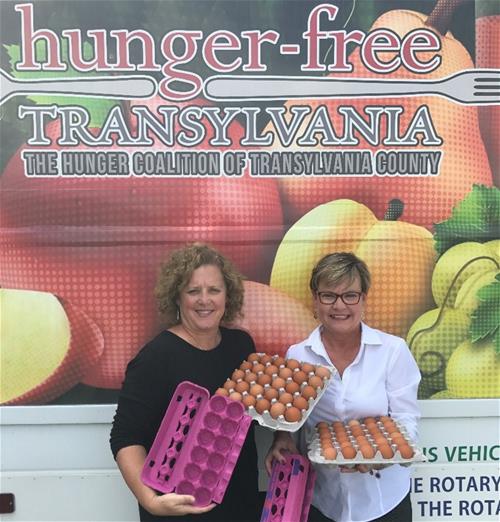Food insecurity – in terms of both affordability and nutrition – is disproportionately high in many of the communities Self-Help serves and is why we focus on strengthening our nation’s food system. This year as we prepare to enjoy time with family around Thanksgiving tables, we at Self-Help are deeply grateful to partners who are hard at work making sure nobody goes hungry during the holidays and year-round.
Just a year ago, as the pandemic wreaked havoc on communities around the country and dimmed the joys of this holiday, frontline workers kept production going and worked hard to keep our grocery shelves stocked. The pandemic tested the limits of our food system, and Self-Help worked to ensure food businesses remained open and rebuilt stronger and more resilient.
Organizations within our footprint continue to work with their communities to end hunger and food insecurity and create flourishing healthy food systems for all. Here are a few highlights from some of our partnerships in this effort:
Fondy Foods partners with Self-Help at the historic Legacy Bank building in Milwaukee's 53206 Community

The historic Legacy Bank building, now home to the Fondy Food Center offices and future home of the Milwaukee Winter Farmers' Market, on W. Fond du Lac Avenue in Milwaukee, WI
When Self-Help Federal Credit Union moved from its Legacy Bank location in Milwaukee, Wisconsin in 2020, we wanted to make sure this historic building would be occupied by an institution that prioritized service to the community. After a long process to understand the 53206 community's needs and desires, we're thrilled that Milwaukee's own 105-year-old Fondy Farmer's Market has now moved in.
"Self-Help was very intentional about this partnership. We interviewed and had meetings with all our stakeholders about how we could repurpose the building. I'm so proud to be part of such a process," says Pamela L. Bell, Milwaukee City Executive & Vice President for Self Help Federal Credit Union.

Venice R. Williams, Interim Executive Director at the Fondy Food Center
Bell expressed her excitement at Self-Help’s taking part in bringing this large farmers’ market to the 53206 area, which has long been a site of disinvestment and high rates of incarceration. Venice R. Williams, who also serves as Executive Director of Alice’s Garden Urban Farm, became Interim Executive Director of the Fondy Food Center this year.
Bell noted that at this location, the presence of the market under Williams’ leadership will expand critical access to fresh produce, connect local farmers to their consumers in the community, and provide space for community events:
"The partnership with Fondy Foods was divine timing—everything lined up and came together. Being able to open the market in that community, having local urban farmers with plots in Alice’s Garden who might sell their produce in the market, working with nearby restaurants, and ultimately creating a healthy food system.”
Common Ground of Eastern North Carolina: Cultivating Community Spaces and Relationships with the Land

Garden plots at Common Ground of Eastern North Carolina’s food park in Kinston, NC
Ten years ago, Lee Albritton, now manager of Self-Help’s Kinston, North Carolina branch, worked with Pastor Julian Pridgen to create a community garden to address the lack of fresh and healthy food in Kinston. Once at the core of the textile and tobacco industries, Kinston has seen both severe disinvestment and four devastating hurricanes, and is now considered a food desert by the USDA.
Together, Pridgen and Albritton founded Common Ground of Eastern North Carolina, an all-volunteer nonprofit organization that runs the five-acre property where the garden is located.
“The inspiration and name came from food as a commonality for everyone in the community,” Albritton recalls. Over the years, Common Ground has built partnerships throughout North Carolina with other nonprofits, businesses, academics, and the faith community, which have helped develop the original community garden concept into something much bigger.
“We’re now looking at it as a space to demonstrate how food is grown. We worked with landscape architects from NC State who created a master plan for the land, which is now a food park that includes the garden, an apiary, and an heirloom orchard, and the Kinston churches have also really helped us build bridges with the broader community,” Albritton says.
Liz Hengst, Ministry Coordinator for Youth at St. Mary’s Episcopal Church in Kinston, and Common Ground staff says that the faith community is invested in improving Kinston’s food system as much as its spiritual life: “We want people of all ages and all backgrounds to be fed by spending time at the garden not just physically, but also mentally and spiritually.”
Since joining Self-Help six years ago, Albritton has found eager partners. “I’ve found Self-Help to be very supportive of our continued relationship with this community and am very happy to be working with the food systems team at Self-Help.”
A challenge to end childhood hunger leads to a fruitful partnership in Western North Carolina

Self-Helper Connie Corn (left) and Beth Hyatt of the Hunger Coalition of Transylvania County (right)
After CEO Martin Eakes challenged Self-Help staff to look for ways to reduce hunger, especially childhood hunger in their communities, Self-Help Marketing and Communications manager Connie Corn noticed a truck from the Hunger Coalition of Transylvania County riding in the Christmas parade in her hometown of Brevard, North Carolina.
Corn arranged for the Hunger Coalition to meet with Self-Help, and the Hunger Coalition staff shared that a significant challenge for them was logistics. Although there are seven food pantries in Transylvania County, they lack the capacity to make deliveries, and are often unable to keep perishable foods like milk, eggs, meat and cheese.
"They said one of their challenges was that local food banks call them and offer, say, a truck full of frozen food, but they had no place to safely store it until delivery."
The Hunger Coalition provides the sole food transport and distribution service for the county’s food pantries, often in very challenging conditions and to community members who rely on the deliveries for their main source of nutrition.
“Food shopping is typically located in just one or two areas in this rural mountain area, and we also have very limited public transit,” says Beth Hyatt, who serves as both the ounty public health department’s Healthy Communities Coordinator and secretary for the Hunger Coalition. “We have to be very consistent to earn the trust of the community; even if weather is horrible, people know we're going to be there no matter what.”
Corn knew that there was an unused Self-Help storage building nearby and suggested converting it into a refrigerated storage space. Soon, several local partners stepped up to provide the necessary wiring, coolers and other updates to make the space fit the Hunger Coalition's needs.
Corn notes that local Self-Help members now get involved when there’s a need for support for the Hunger Coalition: “We’ll have egg carton drives when the Hunger Coalition gets big boxes of eggs, and members show up in droves with their empty egg cartons and repack them.”
Join us in cultivating healthy food systems for all everywhere
If you’re interested in learning more about what we do to expand access to healthy and sustainable food, check out our food systems work, and subscribe to our weekly food systems newsletter (select “Weekly News Update: CDFIs and Sustainable Food Systems”) to get regular updates on what we’re doing to improve the health and well-being of the communities we serve.